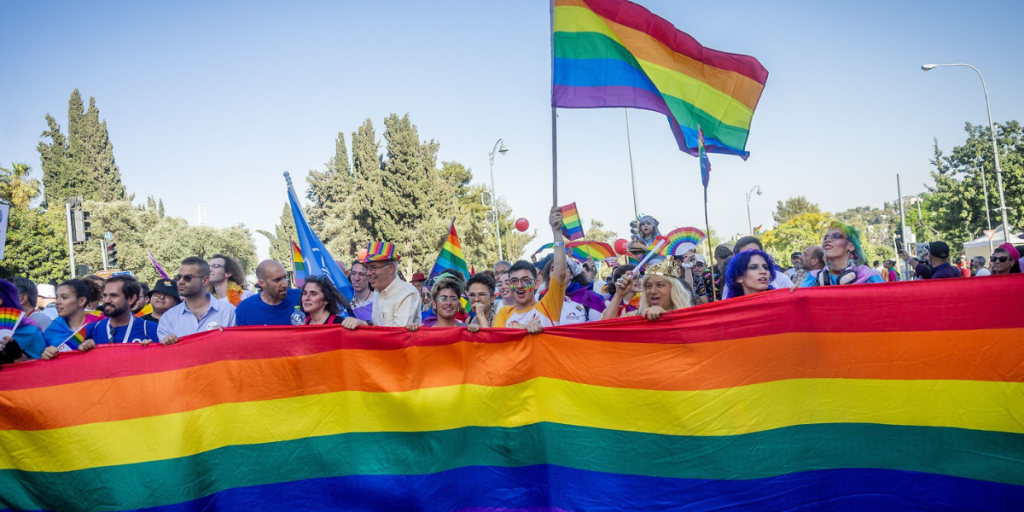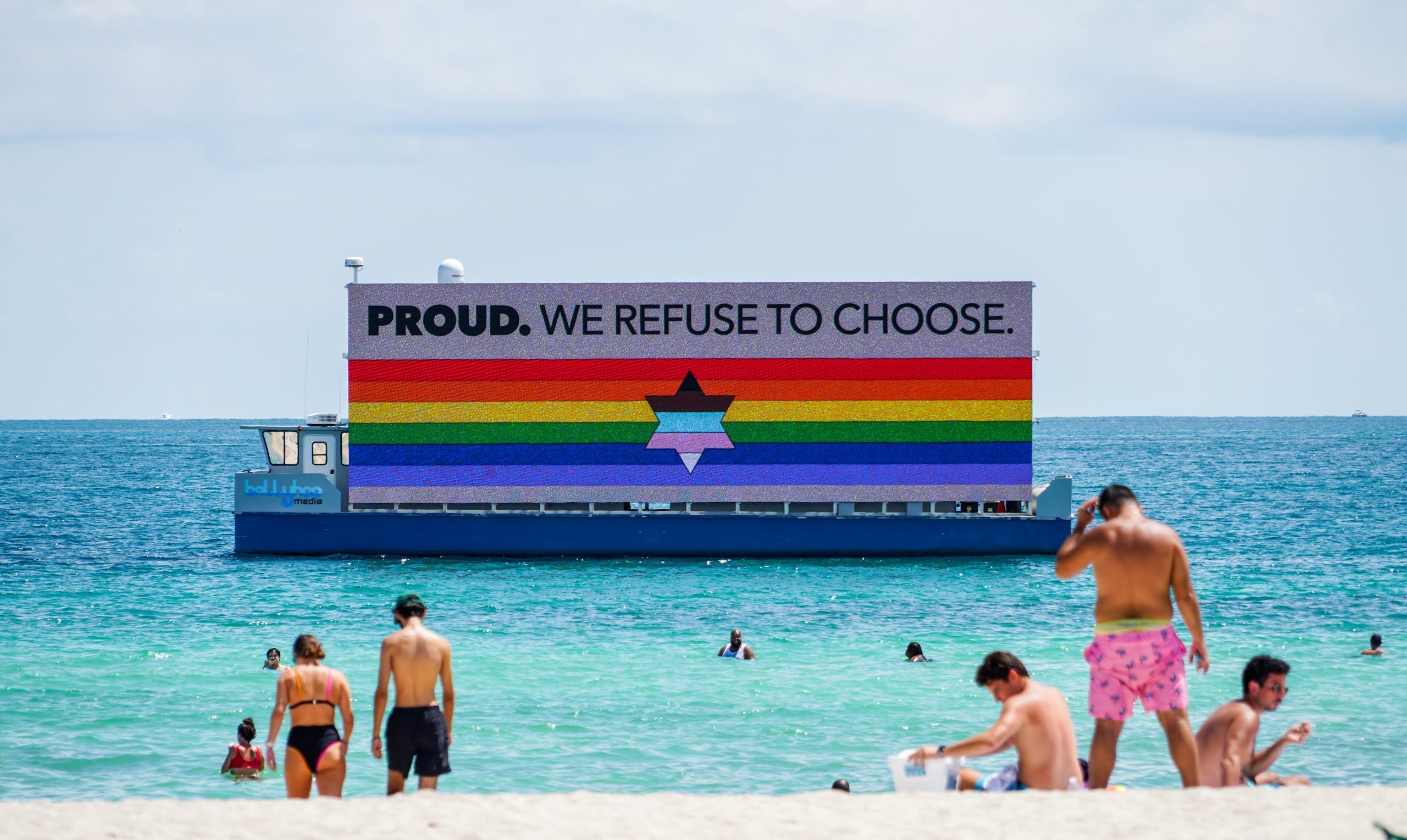
Jerusalem Pride March, held annually every summer since 2002, is one of the most important events of queer culture and protest in Israel.
The pride is produced by the Jerusalem House of Pride and Tolerance, an NGO which serves as Jerusalem’s LGBTQ community center. In recent years, it is attended by 20,000-30,000 participants, including a representation of numerous political parties, NGOs, student groups, youth movements and more.
The march in Jerusalem is highly political and symbolic in nature. Jerusalem is the subject of several local, regional and international political clashes, because of its religious, political and cultural symbolism. Similarly, in the queer context, Jerusalem is a major arena in which the fight for civil equality takes place. The march, which represents the demand of the LGBTQ community to occupy a space in the city and have a voice, representation, and rights in its public space, does not come easily. Most of Jerusalem’s population is religious, so as much of Israel’s population as a whole, who is concerned by the character of Jerusalem.
The pride march in Jerusalem is also a site of political struggles against the local authorities in Jerusalem. Jerusalem’s city government, for example, is unsupportive of the march. It does not fund it, nor provides any resources to its organizers to produce this unique event. Moreover, between 2005-10, Jerusalem Open House for Pride and Tolerance, led multiple supreme court fights against the government, forcing it to allow the pride to march in the public space and allow for it to hang the LGBTQ* flags in the streets. Jerusalem’s police station, on the other hand, cooperates with the march’s organizers – but oftentimes poses security demands and regulations that severely hurt the March’s image and scale.
Throughout its (rather short) history, the march in Jerusalem saw fierce counter protests, and unfortunately – several events of hate crime. The most famous protest against the pride known as the “cattle march”, was held in 2006. Religious protestors walked cows and oxen to mock the participants in the pride march, comparing them to animals. In the march of 2005, violent protests on behalf of ultra-orthodox protesters culminated in the stabbing of three pride participants. The stabber, Yishai Shlisel, was apprehended by the police and later sentenced to prison. Upon his release in 2015, Shlisel attended the March in Jerusalem once again and stabbed Shira Banki, a 16 year old participant in the March.
The immense political struggles that accompany the March’s production almost on a yearly basis emphasize the significance that the Israeli society and its representatives attribute to the march. In recent years, the popularity of the March in Jerusalem has increased dramatically, and especially following the tragic death of Shira Banki. To this day, the march constitutes one of the most special events in LGBTQ* culture, and in addition – it symbolizes liberalism, tolerance, inclusion, and hope.


